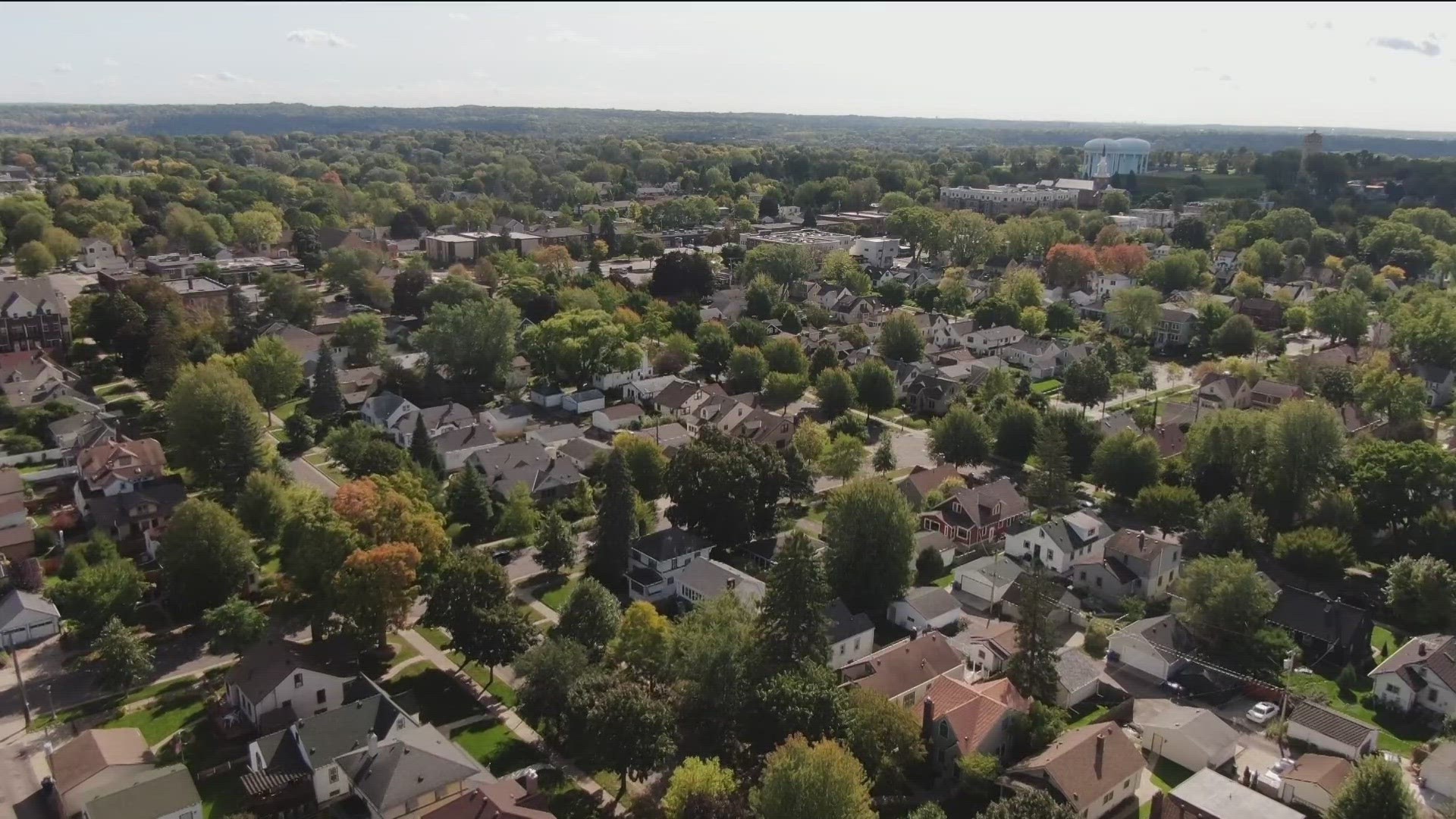ST PAUL, Minn. — City leaders will take a second crack at a fair housing ordinance to protect renters' rights, to replace one that was taken down by the courts previously. The new ordinance would go beyond the city's current code enforcement rules for building upkeep.
The announcement came Friday, which was the third anniversary of the city's 2021 SAFE Housing ordinance going into effect. SAFE stood for stable, accessible, fair and equitable. The city council repealed the ordinance later the same year, after a federal judge barred the city from enforcing it.
"I am committed with this council to restoring renter protection as part of comprehensive housing policy for our community," St. Paul City Council President Mitra Jalali told reporters at a news conference across the street from the massive Afton View Apartments.
"In the entire journey, looking of that apartment, living in that apartment and exiting it, to have stability, due notice, due process, and renter rights. That's what this is all about."
Jalali was the chief author of the SAFE ordinance in 2021. It triggered a lawsuit from 19 property owners, who complained it didn't allow them to properly screen prospective tenants for past criminal history and eviction actions.
A whopping 46 percent of households in St. Paul are renters, according to the US Census Bureau's 2022 American Community Survey. That's one of the reasons tenants' rights remain a top issue for the council.
"What we're talking about the everyday experience of the renter as well," City Council Member Cheniqua Johnson explained.
"When you have a concern what are your abilities to make sure you can communicate that not only to your property managers and owners but also to the council, so we know what people are facing."
The plan for now is to start a conversation, gather more information about what renters are dealing with and then craft an ordinance with input from the community.
Cecil Smith, the CEO of the Minnesota Multi Housing Association, said he hopes his organization will be included in those conversations.
"We always hoped that the stakeholders are brought in to the conversation at the beginning and we're actually listened to," Smith told KARE.
His organization includes 2,200 landlords and property management companies, including many in St. Paul.
"We’re ready to engage and talk about reasonable policies and things that create a fair marketplace, but we need to be careful about burdening the housing market with even more regulations because right now we’re struggling."
Smith said St. Paul landlords are still encountering hardships complying with the rent stabilization ordinance voters passed in 2021, which took effect in January of 2023. It caps rent increases at three percent per year, with exceptions that can be approved by the city.
The city council last year voted to exempt newly constructed apartment buildings for 20 years, after developers said they'd no longer be able to build new market rate units in the city.
Friday's event was sponsored by the progressive interfaith alliance known as ISAIAH. Some of their members shared their experiences with reporters.
Suleiman Ahmed said he fell behind in his rent just one time and had trouble with his apartment complex management accepting his back rent check. When he decided to leave that complex for a new complex, he was was required to pay two and a half months rent up front.
"And I asked, why? And they said you are bad crediter, you are not good credit, good renter."
Another renter, Myra Bolling-Smith, said her complex in the Dayton's Bluff area changed ownership late last year. Since then, residents have had trouble making contact with the new owners, managers, and maintenance persons.
"There are a lot of the tenants who would love to give their issues, concerns, complaints, but they're in fear of retaliation."
The original SAFE Housing ordinance barred landlords from considering vacated or expunged convictions and set limits on how far back the screening process could look at misdemeanor and felony convictions. It also prohibited property companies from declining a new tenant based solely on credit history.
The ordinance also prevented landlords from evicting renters unless they prove "just cause" in court. Just cause, for the purposes of the ordinance, meant failure to pay rent after being given the chance to make up for it, or being late in payments for five out of 12 consecutive months.
In the case of Lamplighter Village Apartments v. City of St. Paul, US District Judge Paul Magnuson ruled that the SAFE Housing ordinance amounted to an unconstitutional "taking" of the landlords' property. The judged ordered the city to pay the landlord group's court costs, which amounted to $990,000.

